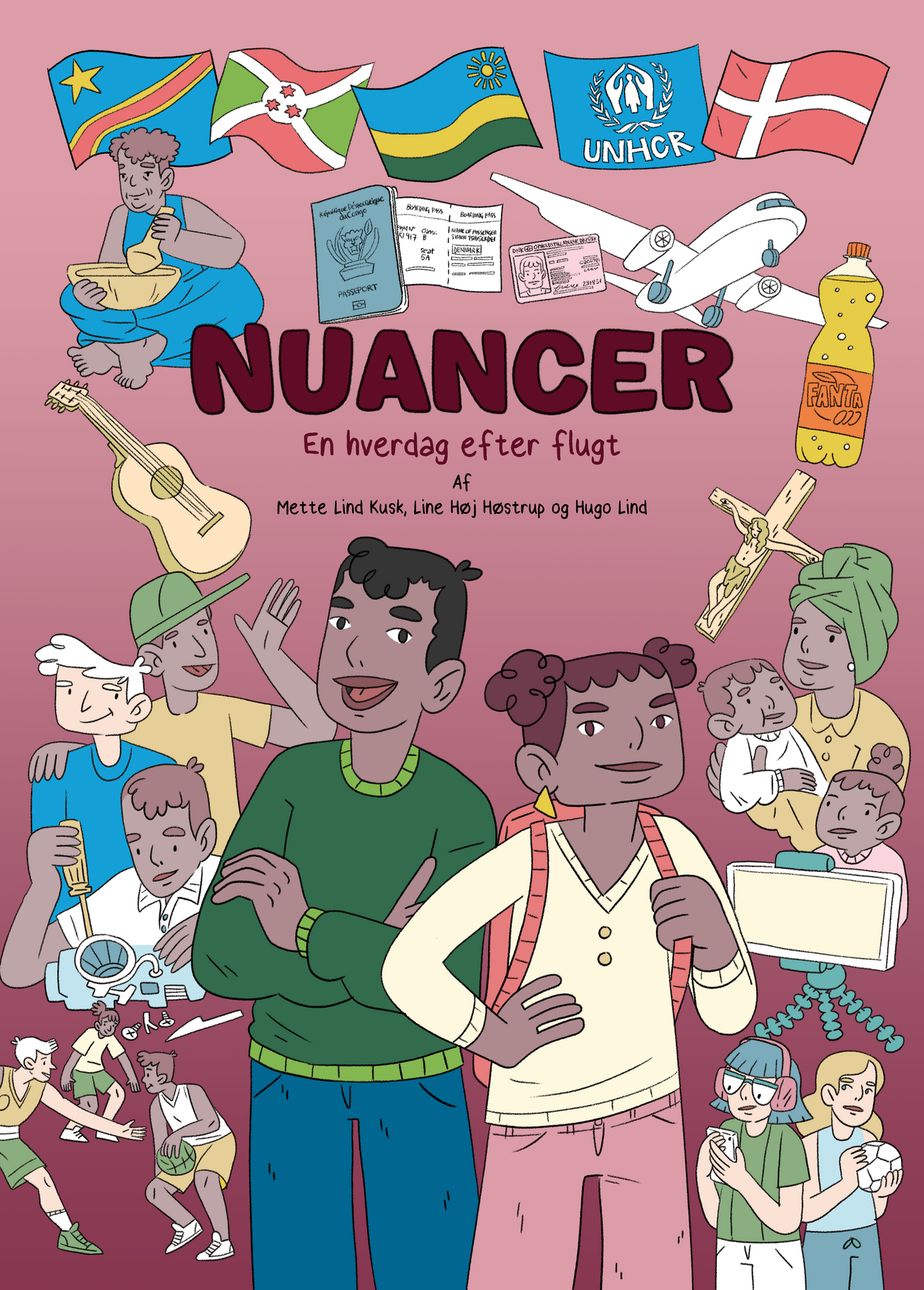Comic book shares young refugees’ experiences at Denmark’s largest comic festival.
In the comic book Nuancer – Life After Displacement, seven young people with refugee backgrounds share stories about life after resettlement in Denmark, created in collaboration with two illustrators. The project is led by anthropologist Mette Lind Kusk, who—together with the Danish Red Cross School Service—will launch the comic on June 8 at Copenhagen Comics, Denmark’s largest comic festival.

How does it feel to start a new life in a foreign country after fleeing? A new comic, "Nuances - an everyday life after fleeing", tries to answer this question – seen through the eyes of young refugees.
Behind the project is postdoc Mette Lind Kusk, who conducts research into Denmark's resettlement of refugees via the UN's quota refugee programme. Together with seven young people with refugee experience and two illustrators, Line Høj Høstrup and Hugo Lind, she has developed an 80-page comic that follows the two fictional characters Esther from Burundi and Simon from DR Congo – from everyday life in a refugee camp in Rwanda to their first year in Denmark.
About the comic's communication potential, she says:
"Comics can convey complex knowledge with presence, and the genre holds great potential for research communication. I also draw inspiration from the growing field of 'graphic anthropology', which works with visual ethnographic narratives."
A communication format that protects the vulnerableThe choice of comic format is not random. In addition to creating a collaborative space where the young people can actively contribute, the drawings provide an opportunity to convey complex experiences without exposing the participants.
"When working with young people in vulnerable positions, it is important to be able to convey their perspectives without revealing their identity. Comics can capture sensory everyday experiences in a way that few other formats can," says Mette Lind Kusk.
Collaboration across the boardDuring the project, several new collaborations have emerged. The Red Cross School Service has contributed with an afterword to the comic, and Copenhagen Comics, which takes place on 8 June, has invited the project to be part of their program.
The Centre for Teaching Resources (CFU) has shown interest in using "Nuances" in social studies teaching. At the same time, there are plans for a translation into Kinyarwanda, one of the central languages of Rwanda, so that the young co-creators can read the stories in their native language.
"I hope that the comic can counteract the dehumanization we often see in the refugee debate and remind us of all that people have in common across backgrounds," says Mette Lind Kusk.
The comic is supported by the Carlsberg Memorial Grant and has arisen as part of the Velux-funded research project Reorienting Integration, which is based on a collaboration between Aarhus University, DRC Danish Refugee Council, VIVE, resettled families and selected municipalities.
Link to the comic.
Contact
Mette Lind Kusk, Postdoc
Department of Anthropology
School of Culture and Society
Aarhus University
Mail: melk@au.dk
